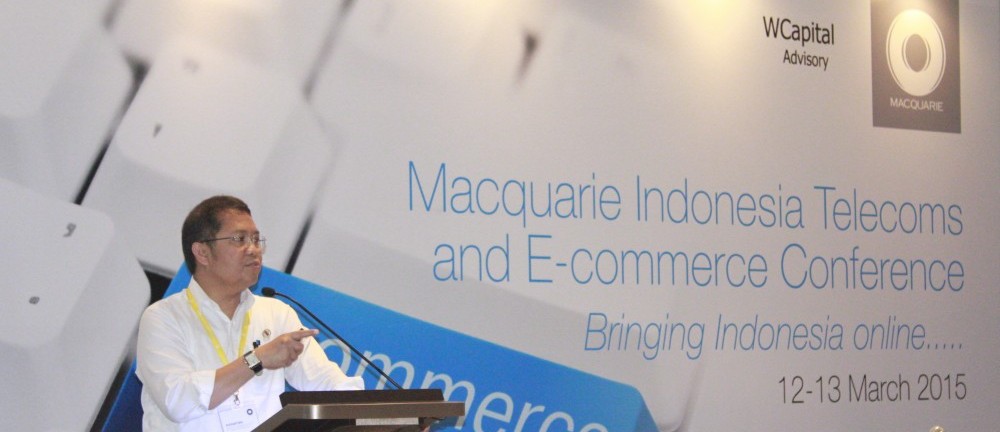
Macquarie Indonesia, the local branch of the global investment banking and financial services giant, held an invite-only conference for high-profile professionals in the telecoms and ecommerce spaces. No other press were allowed inside the venue at the Ritz Carlton, and the list of speakers included some interesting names, including Indonesia’s tech minister Rudiantara, CEOs from the top three telcos, and a slew of investors, VCs, and startup founders, among others.
The speakers shared the industry’s latest data and insights about the future of the telco business in Indonesia, as well as the most up-to-date information about the archipelago’s internet users and online shoppers. Based on their findings, here are some insights to keep in mind going forward (Hat tip to Macquarie for providing a post-conference overview).
Mobile data traffic has been growing at around 100 percent year-on-year in recent years, according to the telcos, and looks set to continue in the medium term as we reach an inflection point in the quantity of online content.
This is helped by rising smartphone adoption in Indonesia, young demographics, and a growing middle income populace. Indonesia’s affinity for social media (it is number four in terms of Facebook usage) is well-acknowledged. However, what is less well-known is the development boom for localized content that helps accelerate web traffic in Indonesia.

The Indonesian government claims to be highly supportive in developing the ecommerce industry. It plans to announce an “ecommerce roadmap” this year, which will involve input from nine government ministries. From a telecoms perspective, the government highlights the importance of “industry efficiency,” which in part means allowing mergers and acquisitions to run more smoothly in Indonesia. This, in turn, should improve the sustainability of Indonesia’s ecommerce industry and promote further investment.
In addition, the tech minister wants to raise US$1 billion for local tech startups to be controlled by a non-state-owned or privately-owned venture capital firm. “I’ve approached the top 20 conglomerates in Indonesia about this issue,” explains minister Rudiantara. “We must have a roadmap for this three to six months from now and the conglomerates would be the ones to choose the VC.”
Regarding recent media coverage about an imminent rule for locally made 4G smartphones, the minister claims he never said that 40 percent of the 4G mobile handset components will need to be produced locally. According to him, the government has not yet mandated a fixed percentage for the regulation, although Rudiantara says he has been in talks with several local mobile manufacturers regarding their production capacities. He says:
The decree will go into effect later this year. We welcome input from all stakeholders at this time. Importing these products contributes to our trade deficit. This is a macroeconomic issue that I must address.

The digital ecosystem is still in its early days, but that’s changing quickly
A clear theme to emerge from the conference was the number of bottlenecks preventing Indonesian ecommerce from rapid acceleration. The key challenges currently include online payments (with credit card penetration still around three percent), weak logistics and infrastructure, shallow human capital, and regulatory uncertainty.
According to Macquarie, telecom operators and banks are leading the charge in growing the ecosystem by allocating resources. However, the firm asserts that the demand for ecommerce will outpace supply over the next 12 months in Indonesia.
Data now accounts for 25 percent of revenues for the local telecom industry. With online traffic accelerating as demand expands beyond social media and into online retailing, we can see an upside to data-led revenues, especially if operators can execute on content strategies centered around mobile advertising, ecommerce, and mobile money.
XL Axiata and Indosat appear more advanced in their digital sevices strategy, while Telkomsel will continue to benefit from its competitors’ early findings.
Online retail has seen exponential growth the last 12 months with Lazada Indonesia, Tokopedia, BukaLapak, and Zalora currently leading the way in the archipelago.
Lippo Group’s recent US$500 million investment in MatahariMall potentially places the firm in an advantageous position in the medium-term to capture market share in online retailing. It’s supported largely by Lippo’s strong nationwide footprint and competitive advantage stemming from a sophisticated local supply chain.